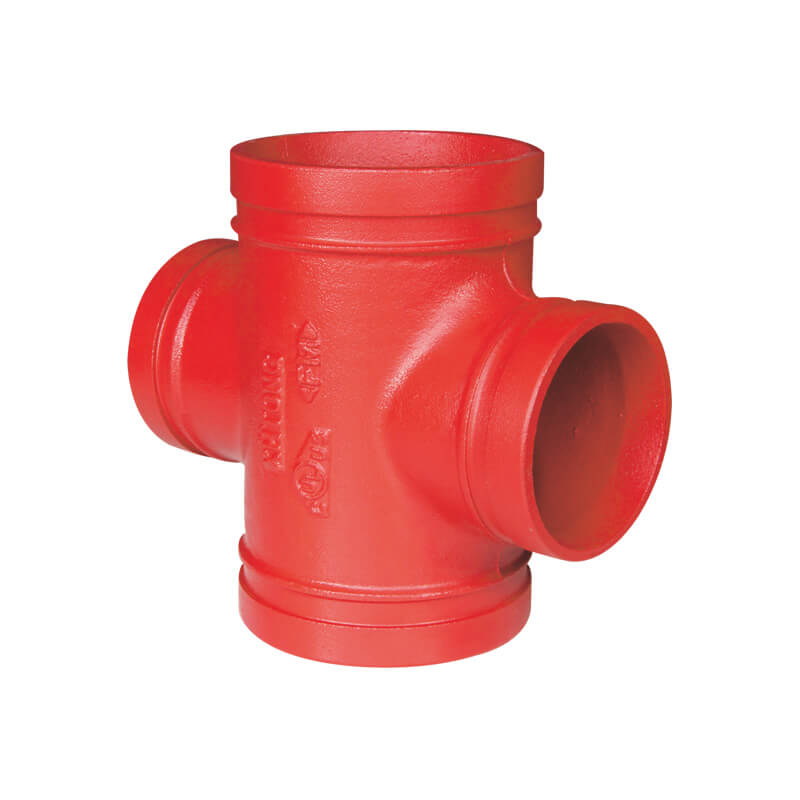Ductile Iron DI grooved pipe fittings are commonly used in various piping systems due to their durability and ease of installation. The most common material used for DI grooved pipe fittings is ductile iron itself. However, other materials may be used for specific applications or requirements. Here are some common materials used for DI grooved pipe fittings:
Ductile Iron (DI):
Ductile iron is the primary material used for DI grooved pipe fittings. It offers excellent strength, durability, and corrosion resistance. DI fittings are known for their ability to withstand high-pressure applications and mechanical stresses. They are typically coated with an epoxy or paint finish to provide additional protection against corrosion.
Stainless Steel:
Stainless steel grooved pipe fittings are often used in applications that require high corrosion resistance or hygiene standards. Stainless steel fittings are durable, resistant to rust and corrosion, and suitable for various environments, including those with aggressive or corrosive media. They are commonly used in industries such as food and beverage, pharmaceuticals, and chemical processing.

Carbon Steel:
Carbon steel grooved pipe fittings are known for their strength and affordability. They are suitable for a wide range of applications, including industrial and commercial systems. Carbon steel fittings offer good mechanical properties and are commonly used in systems that handle non-corrosive fluids or gases.
PVC (Polyvinyl Chloride):
PVC grooved pipe fittings are used in applications that require corrosion resistance, lightweight construction, or compatibility with PVC piping systems. PVC fittings are commonly used in water supply, irrigation, and drainage systems. They are cost-effective, easy to install, and provide excellent chemical resistance.
HDPE (High-Density Polyethylene):
HDPE grooved pipe fittings are used in applications that require excellent chemical resistance, flexibility, and durability. HDPE fittings are commonly used in water and wastewater treatment, mining, and agricultural systems. They offer resistance to corrosion, abrasion, and chemicals, making them suitable for demanding environments.
It’s important to note that the availability of specific materials may vary depending on the manufacturer and region. When selecting the material for DI grooved pipe fittings, consider the application requirements, including the fluid or gas being transported, pressure and temperature conditions, and compatibility with the existing piping system. Consulting with suppliers or industry professionals can help ensure the appropriate material selection for your specific application.
Cast iron regulating valves – Fluid Fittings Manufacturer
Fluid Tech Group provides cast iron valves, fire valves and pipe fittings. Meanwhile, regulating valve is one of the popular valves to oversea market.
A regulating valve is a type of control valve used to regulate and control the flow and pressure of fluids like gas, steam or water in piping systems. Fluid regulating valves normally adapt materials as cast irons.
- Operation: Opening/closing mechanism adjusts flow area based on sensed pressure differences using an actuator and controller.
- Common designs: Pilot-operated pressure regulating valves, self-acting thermostatic valves.
- Types: Mostly globe style with pneumatic or electric actuators. Diaphragm or piston design sense pressure.
Leave a Reply